


The band’s early line-up featured Charles Bailey (trumpet), James “Butch” Barton (trombone), Eli Brown (saxophone), Willis Norman (lead guitar), Roy Hubert (rhythm guitar), Willie Hill (bass guitar), and Linwood Parker (drums). The B-sides of their two records with the Communicators highlight the band’s immersion in funk in the style of Kool & the Gang and Funkadelic. After parting ways with the Communicators, the group backed up the Modulations for a time and then played as a self-contained band before breaking up. Later line-ups included James Brown, a saxophonist who also played with Bite, Chew & Spit out of Asheville, and trombone player Bill Amey.
The Black Experience Band came together around 1970 to back up the Communicators, a vocal group.


This Carolina Times article about the Black Experience Band from March 1976 highlights the group's ties to local promoters Jimmy Liggins and Paul Truitt.
Ronnie Garrett and Melvin Bassett formed the band Transit with several Black Experience Band alums.


This five-member harmony group showcased the vocal talents of Tommy Clegg, Izell Gooch, Sylvester Howell, James Jenkins, and Cager Perry. Backed up by the Black Experience Band, the Communicators’ debut recording in 1973 was a pleading love ballad called “One Chance.” Originally a regional sensation, the record was later picked up by Sylvia Robinson’s Turbo label out of New Jersey. The group followed up with “Has Time Really Changed” in 1974, but disc jockeys considered it too political, and gave it much less airplay than “One Chance.”

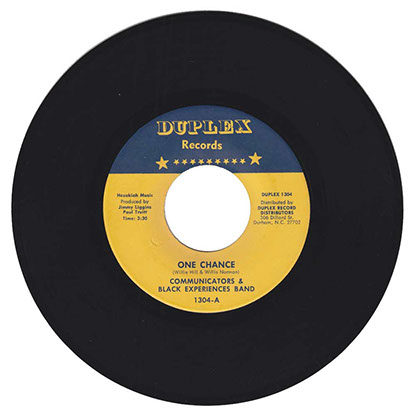
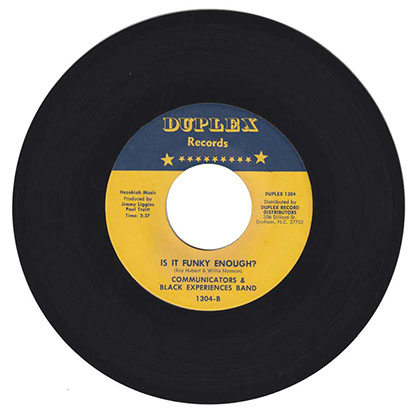
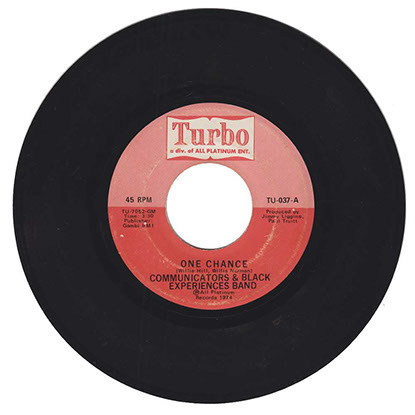
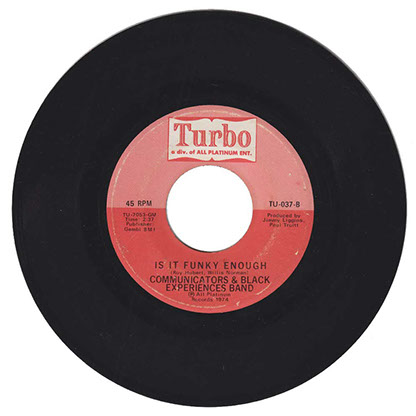
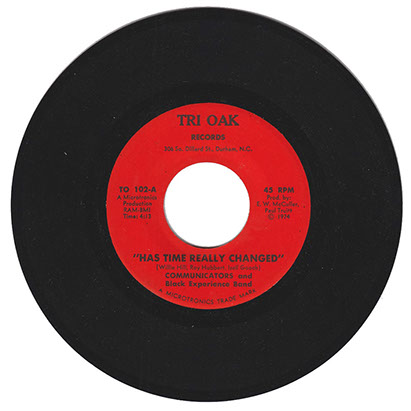
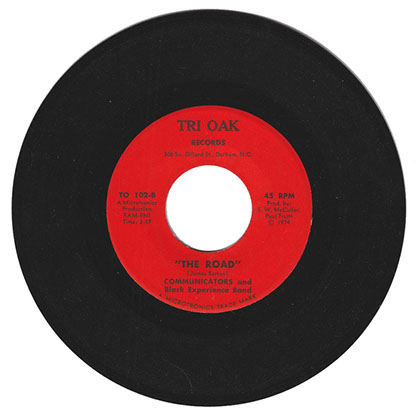
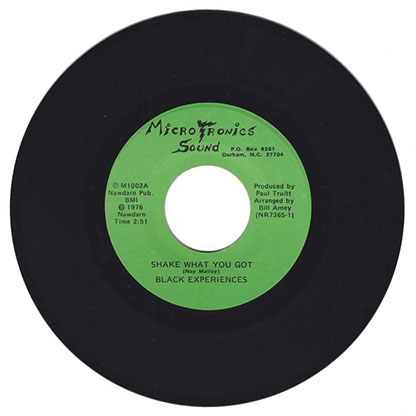
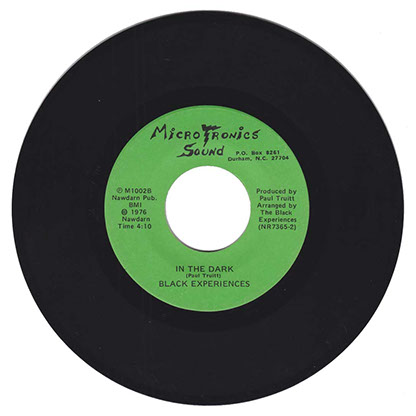








Communicators & Black Experiences Band
"One Chance" b/w "Is It Funky Enough?"
(Duplex 1304; 1973)
This scintillating 1973 sweet soul debut by the Communicators was penned by their bass player Willie Hill and guitar player Willis Norman.
Communicators & Black Experiences Band
"One Chance" b/w "Is It Funky Enough?"
(Duplex 1304; 1973)
This scintillating 1973 sweet soul debut by the Communicators was penned by their bass player Willie Hill and guitar player Willis Norman.
Communicators & Black Experiences Band
"One Chance" b/w "Is It Funky Enough"
(Turbo 037; 1973)
On the strength of sales of “One Chance” on the Duplex label, New Jersey’s Turbo company picked it up for national distribution in 1974.
Communicators & Black Experiences Band
"One Chance" b/w "Is It Funky Enough"
(Turbo 037; 1973)
On the strength of sales of “One Chance” on the Duplex label, New Jersey’s Turbo company picked it up for national distribution in 1974.
Communicators & Black Experiences Band
"Has Time Really Changed" b/w "The Road"
(Tri Oak TO 102; 1974)
Communicators & Black Experiences Band
"Has Time Really Changed" b/w "The Road"
(Tri Oak TO 102; 1974)
Black Experiences
"Shake What You Got" b/w "In The Dark"
(Microtronics M1002; 1976)
“Shake What You Got” headlines the only release made by the Black Experience Band after parting ways with the Communicators.
Black Experiences
"Shake What You Got" b/w "In The Dark"
(Microtronics M1002; 1976)
“Shake What You Got” headlines the only release made by the Black Experience Band after parting ways with the Communicators.
discography

